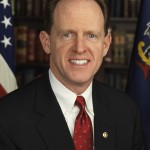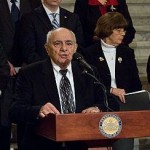Keystone State Games Underway
 5,000 amateur athletes have descended on the Hershey-Harrisburg region or the 30th annual Keystone State Games. This is the third time they’ve welcomed athletes from all 67-counties. “We are an Olympic-style sports festival. We are Pennsylvania’s largest annual sports festival. From where we started in 1981, we’ve had over 300,000 participants,” says James Costello, director of events.
5,000 amateur athletes have descended on the Hershey-Harrisburg region or the 30th annual Keystone State Games. This is the third time they’ve welcomed athletes from all 67-counties. “We are an Olympic-style sports festival. We are Pennsylvania’s largest annual sports festival. From where we started in 1981, we’ve had over 300,000 participants,” says James Costello, director of events.
The mission is to promote physical fitness as a health improvement strategy, and to drive what amateur athletic competition is all about. “To really put in the sportsmanship, the work ethic that goes into amateur sports,” Costello adds.
He says the games welcome a wide range of ages too: “We start at age six in our wrestling… and it goes all the way up to 99-years-old in our track and field competition.” However, most participant are scholastic athletes, in high school or college.
The 2011 Keystone State Games started on Tuesday and will continue through Sunday. You’ll find everything from handball to hockey when you check the live score updates online.
This week’s winners will be eligible for the State Games of America, which will be coming to the Hershey-Harrisburg region in the summer of 2013. “Throughout the country, any athlete who places in the top three positions, within the next two years, is automatically eligible to compete in the national competition.”

















